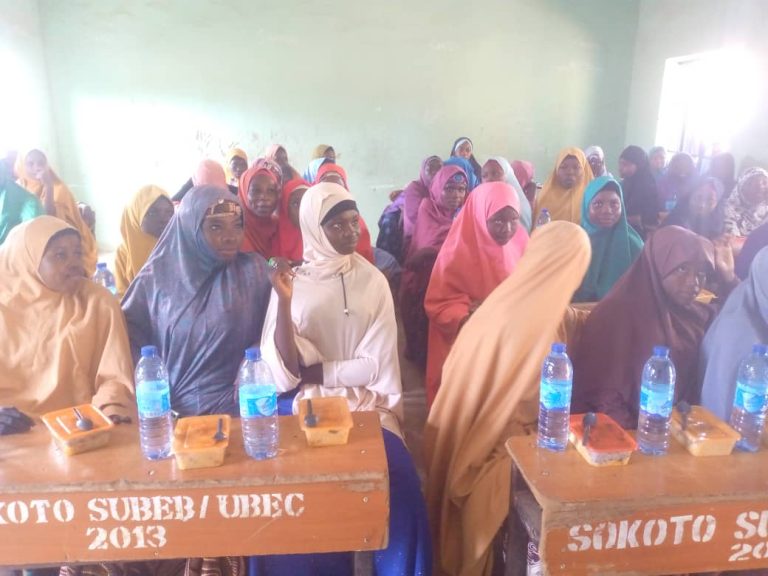The Sokoto State Government, in partnership with UNICEF and the State Universal Basic Education Board (SUBEB), is concluding a transformative two-year implementation of the REACH Programme—an initiative dedicated to empowering adolescent girls through education, life skills, and community support.
REACH, which stands for Reaching and Empowering Adolescent Girls in North West Nigeria, was implemented across six local government areas in Sokoto. The programme targeted girls who had either dropped out of school, never enrolled, or needed extra support to transition and complete their basic education.
The number of female who graduated from Primary 6 across the 6 LGAs was 19,455, out of which a total of 14,607 in the last academic session.
During a media briefing in Bodinga Local Government Area, Ngozi Izuora Songu, UNICEF Nigeria’s Adolescent Development Specialist, explained that the programme was tailored to break the barriers preventing girls in northern Nigeria from accessing education and building meaningful futures.
“REACH was developed to address the barriers that prevent adolescent girls from staying in school and gaining skills for life,” she said. “We worked closely with state partners and community leaders to identify and enrol vulnerable girls.”
Now in both Sokoto and Katsina States, the programme has focused on increasing enrolment, retention, and transition rates while also imparting leadership and vocational training to girls. These combined efforts have empowered beneficiaries to build confidence and seek better livelihood opportunities.
Voices of change
Fifteen-year-old Zinatu Kabir Ahmed, once unable to continue beyond primary school, is now back in class and has also acquired baking skills.
“I’m back in school now, and I’ve learned how to bake doughnuts and cakes. I can support my family and dream bigger,” she shared.
For 22-year-old Asmau Bala, a mother of four who dropped out in JSS 3, the programme was a lifeline:
“REACH helped me improve my reading and writing. I also learned skills I can use to earn a living. This chance has changed everything for me.”
In addition to helping girls return to school, REACH emphasized leadership and assertiveness for those still enrolled. Fourteen-year-old Saudat Babangida, now determined to serve in the Nigerian military, credits the programme for instilling confidence.
“This programme made me believe in myself. I want to protect my state and serve Nigeria,” she said.
Empowered families, stronger communities
Parents also testified to the impact. Murjanatu Ibrahim, whose two daughters were beneficiaries, said they had become more focused after learning tailoring and pastry-making.
“They are now more focused. I’m proud,” she said.
Beyond academic support, the programme tackled broader developmental issues by training girls in soft skills, self-awareness, and community advocacy—equipping them to become change agents and role models in their communities.
As REACH wraps up in Sokoto, the state shines as an example of what’s achievable when governments, development partners, and communities unite to uplift the girl-child. The legacy of the programme will endure in the stories of girls who now walk taller, speak with confidence, and dare to dream.
By Usman Mohammed Binji


